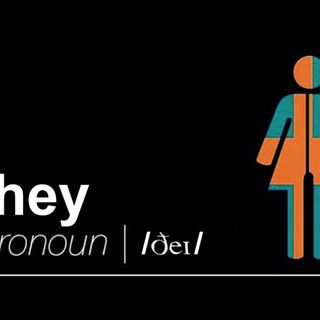
No, Ministry of Health, a Fetus Is Not a ‘Vulnerable Person’
Living, breathing women are people — whom you render vulnerable and second-class when you take away their absolute right to abortion.

“A woman’s personal freedom of choice cannot curtail another individual’s freedom or choice, especially the most vulnerable and those who are defenseless,” the Ministry of Health and Family Welfare told the Supreme Court of India on Wednesday, adopting a rather fundamentalist, pro-life, and intrusive approach to women’s bodily and reproductive autonomy when it comes to their right to safe abortions.
The Court was listening to a plea to extend the legal limit for the termination of a pregnancy from the current 20 weeks to 26 weeks, filed by gynecologist Dr. Nikhil Datar, who is challenging the constitutional validity of the Medical Termination of Pregnancy (MTP) Act, 1971, as it reads today. The plea also seeks to quash a provision in the Act that restricts abortions between 12 and 20 weeks of pregnancy only to cases in which the woman’s life is in danger.
The Central government, though, was listening to none of it.
In an affidavit asking the Supreme Court to dismiss the plea, and saying it was not inclined to legislate on the MTP Act, the Ministry said, “The right to reproductive autonomy [of the petitioners] does not outweigh the interest of the state in protecting the life of the fetus in the womb, especially from the point of viability, i.e., from the period of 20 weeks onwards,” as reported by The Week.
Science is less cocksure about the point of gestational viability than the government, but the overall medical consensus is that there is no sharp cut-off stage of development after which a fetus becomes capable of surviving independently outside the womb. Studies have shown that while 20% to 35% of babies born at 24 weeks of gestation survive, of those born at 26 to 27 weeks, 90% survive. So, no — there is no certain “life” to be protected just yet at 20 weeks of gestation, across the board.
There is a reason a trained gynecologist is asking for an extension to the legal limit of 20 weeks: there are many congenital abnormalities — of the heart, brain, spine and many more — that become visible only in the 20- to 24-week period. In such cases, for a woman who wants to abort a fetus that will go on to die if born, due to such a congenital defect, it is important that the MTP Act is amended at least to provide for valid exceptions to the cutoff at 20 weeks, even if not to raise the bar entirely.
Related on The Swaddle:
India Needs More Abortion Providers. Let the MTP Bill Enable Them.
In its defense, the Ministry said “several studies have repeatedly found that even in cases where serious abnormalities were detected after the twentieth week, pregnant woman who chose to carry the pregnancy to term were able to better cope with the loss, mental anguish, and trauma as compared to woman who chose to terminate the pregnancy,” as reported by The Times of India. While we can’t thank the State enough for looking out for anguished and traumatized women, the operative word in that statement is “chose.” It’s surreal how warped the reality is for those (men) in power: what about the mental anguish, trauma, and physical effects that women face from being legally forced to birth and raise — or not getting to raise — a child who will necessarily die immediately or shortly after birth, because the doctor could only detect a fatal abnormality after the window to terminate the fetus was closed?
Apart from referring to a fetus as a “vulnerable person” — while ironically sidelining adult women, whom such language renders vulnerable and second-class — other stick-in-the-mud, fogy gems uttered by the Ministry include: a woman’s right to abortion is “not absolute” and that an “unborn child cannot protect itself from the harm designed by his/her very own mother.”
First, a woman’s right to have an abortion should be absolute. That is the only way to increase the quality of life of the mother and of children, period. Second — and for the nth time — a fetus is not an unborn, defenseless, vulnerable person; it is a fetus. By calling a fetus a person, the rights to life, reproductive autonomy, and privacy of the real, adult women who have elected you and whom you represent are being harmed.
Third, it is false and insulting to equate a woman seeking an abortion to murder. Women who choose to exercise agency over their bodies are not malicious and devious. Please unburden yourself of your perceived moral duty to act as a guardian. This parens patriae rationale where the State basically acts as the father of the people — the fetus in this case — is disturbingly patriarchal and misogynistic.
Related on The Swaddle:
Abortion Is Legal in India, But Not Enough Women Know It
“Sixty percent of women in India believe that abortion is illegal, and therefore undergo unsafe abortions in unsanitary and unhygienic conditions. The Ministry of Health and Family Welfare’s statement to the Supreme Court can very easily be misinterpreted and make women believe that abortions are illegal,” Vinoj Maning, CEO of Ipas Development Foundation, an NGO that empowers women to exercise their sexual and reproductive rights, said to The Print.
The worse part is the State knows this. In its affidavit, it argued India’s high maternal mortality rate is due to women seeking unsafe abortions beyond the prescribed ceiling of 20 weeks when no fetal abnormalities are detected. Even if this is so — it’s not; the leading causes are bleeding and infections after childbirth, both easily preventable or treatable only if the government focused effective efforts there — doesn’t that just mean women need and want an increase in the legal ceiling and will have an abortion despite it, even if it risks their life? Research suggests 56% of all abortions performed in India — as many as 15.6 million in 2015 — are unsafe, with 10 women dying each day as a consequence, on an average.
Doesn’t that just prove that when you restrict access to abortions, you only restrict access to safe abortions? The solution, then, is not to blame women for their own deaths, but to create circumstances wherein women can exercise absolute reproductive control in a way that doesn’t risk their lives. Didn’t think we’d have to spell that one out.
Pallavi Prasad is The Swaddle's Features Editor. When she isn't fighting for gender justice and being righteous, you can find her dabbling in street and sports photography, reading philosophy, drowning in green tea, and procrastinating on doing the dishes.
Related


Merriam‑Webster Agrees: ‘They’ Is a Singular Pronoun for Non‑Binary People
